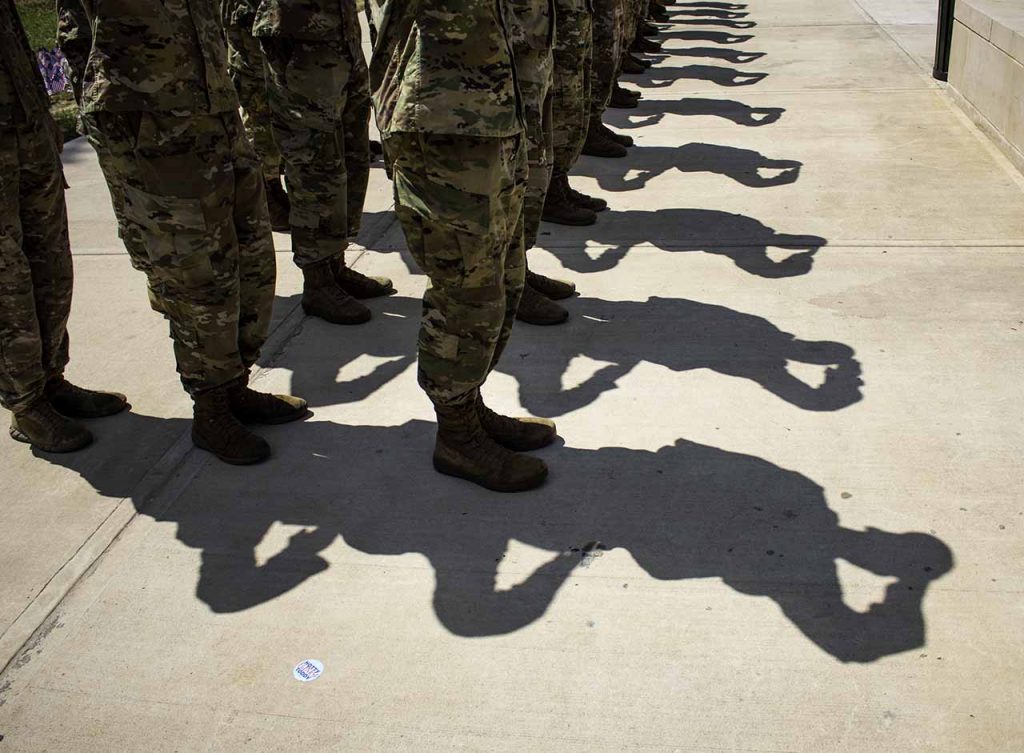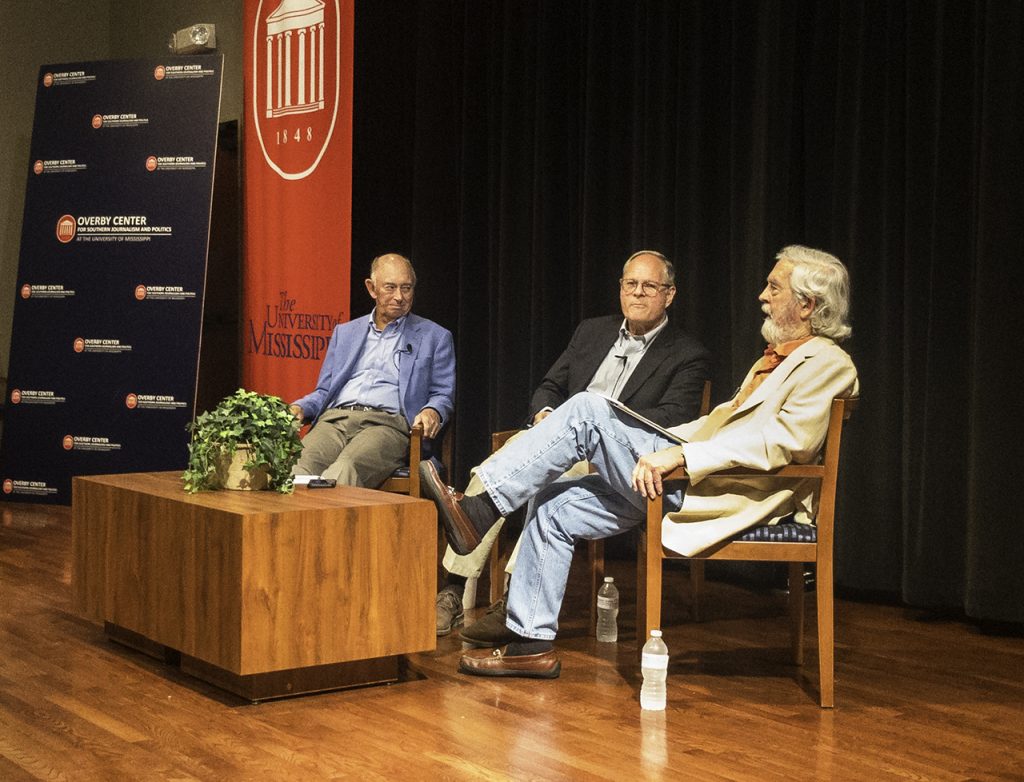
The typical incoming college student has fantasies of sipping a beer at their first college party, becoming friends with their roommates and having no parental supervision. Student veterans, with different life experience and sometimes challenges finding support, have different expectations.
Allen Frazier, a 23-year-old student veteran, has been a student at Ole Miss for about two years.
“I served four years in the Army as a Cavalry Scout at Fort Wainwright, Alaska,” Frazier said. “I know that when compared to your average 20-year-old student I’ve been through a lot more and have a bit more life experience than them — same thing with other veterans who maybe served longer or did more than me.”
When Frazier first started college, he said he had a difficult time adjusting to the new atmosphere.
“I went to another school a month after getting out and I really struggled there. I was still trying to readjust from the Army, and it was a small school,” Frazier said. “Transferring here, I felt a little overwhelmed at first but I found it easier to make friends and was surprised at how many opportunities there are for veterans here.”
Winston Taylor, 25-year-old student veteran, said he also had a tough time going from service to school.
“In general, veterans will have a more difficult time transitioning to college life than traditional students,” Taylor said. “Much of this involves finances and lack of support networks. Schools such as Auburn have extensive organizations which support their veterans. Here, we have the Student Veterans Association to fill this role.
“But barring a few Greek organizations, the SVA rarely gets the support we need. So the challenges faced by veterans here are similar to those faced by veterans everywhere. That being said, I will commend the administration for giving us a better location for the Veterans Resource Center.”
Taylor said he thought Ole Miss does not employ enough officials to certify student veterans’ benefits.
“The most challenging thing for veterans at Ole Miss involves the lack of certifying officials for educational benefits. We have tried to get more officials hired for some time now, yet the administration is often not open to it,” Taylor said. “I believe that proportional to our number of people using benefits, we should have around 10 officials, and we currently have just two. This leads to financial problems with veterans waiting for their paperwork to be done before getting paid.”
Taylor said that this issue needs to be heard by faculty members and wants a change to be made.
“Some people don’t want to make too much noise about this problem because they don’t want to ‘pick a fight,’ but I believe sometimes a fight is necessary to make progress. And as much money as veterans bring into this school, I would think that it’s worth investing in,” Taylor said.
According to Michael Weldon, vice president of the SVA, student veterans are anywhere from 22-77 years old and there are almost 200 SVA members here at Ole Miss. A concern student veterans have when arriving to college is how they will become acquainted with other students.
“The biggest challenge is changing the narrative as what people currently see. We are working hard to be more and more integrated with the University and the community. This organization is less about an exclusive club and standing alone and that’s a common thing people think,” Weldon said. “The truth is these veterans involved are generally more comfortable around other veterans when they first come to Ole Miss but that’s not how they want it to stay.”
Frazier said that being in the SVA has given him great opportunities and helped him tremendously.
“Being a veteran, I was able to attend the Student Veterans Association Gala last year. I met influential people such as the governor, had a great time and was given a $1,000 scholarship award by the organization. I’m definitely looking forward to it again in November now that I’m one of the SVA officers helping run it,” Frazier said.
While coming in as a student veteran differs from coming in as a traditional student, Frazier said he would not change his experience.
“I know I wouldn’t have enjoyed college if I did it before the Army. I was impatient my whole senior year of high school and was looking forward to serving,” Frazier said. “I went straight into the military, and my brother went to Ole Miss. He felt out of place here and ended up leaving to join the Marines as I separated from the military. If I came here first like him, I would have done the same thing.”
Frazier wants future veterans to arrive at college with an open mind.
“I would tell future veterans to embrace the college life. I was quiet and reserved when I got here and It took me over an entire year to fully readjust, now I have a ton of friends, a good job, a Student Veterans Association that helps me out, and now I’m in a fraternity so I always have something to do, friends to turn to, and I can stay busy which I enjoy.”
Winston said he feels getting involved on campus is key to student veterans.
“The best advice I could give to other veterans is to get involved in as many organizations as possible and not be turned off by being a part of something where you may be the only veteran there,” Winston said. “In my experience, the students of Ole Miss are always welcoming and helpful to veterans.”
















